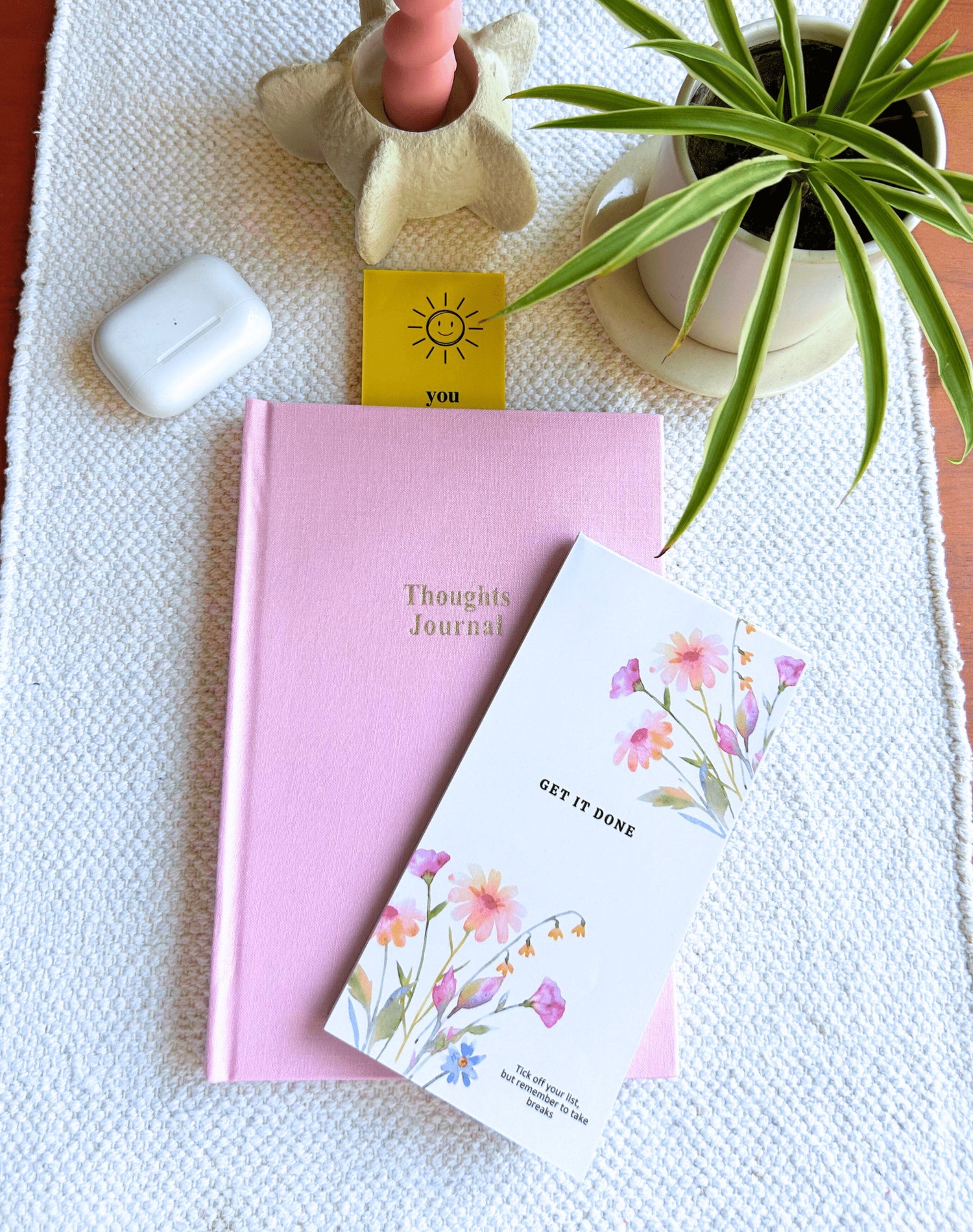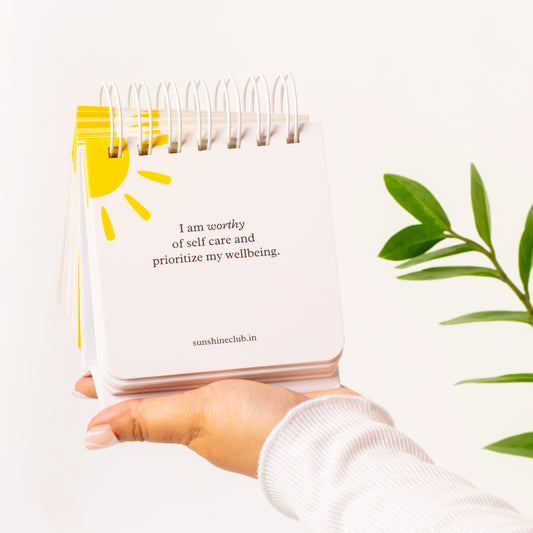
The Power of a Thoughts Journal: A Self-Care Essential
Share
In today's fast-paced world, self-care is more important than ever. Among the various self-care practices available, keeping a thoughts journal stands out as a simple yet powerful tool. Not only does it offer a space to express your feelings, but it also plays a vital role in maintaining mental well-being. If you're looking to enhance your self-care routine, incorporating a thoughts journal could be the key.
What is a Thoughts Journal?
A thoughts journal is a dedicated space where you can freely express your thoughts, feelings, and experiences. Unlike a traditional diary, which often records daily events, a thoughts journal focuses on your internal world—your emotions, reflections, and personal insights. This practice allows you to process your feelings, gain clarity, and better understand your mental and emotional state.
Why is Journaling Important for Self-Care?
Journaling is a powerful self-care activity because it offers several benefits that contribute to overall well-being. Here are some reasons why keeping a thoughts journal is an essential part of any self-care routine:
- Emotional Release: Writing down your thoughts and feelings can be a therapeutic way to release pent-up emotions. By putting your thoughts into words, you can reduce stress, anxiety, and emotional overwhelm.
- Self-Reflection: A thoughts journal encourages self-reflection. By regularly writing about your experiences and feelings, you can identify patterns, triggers, and areas in your life that may need attention or change.
- Mental Clarity: When life feels chaotic, journaling helps organize your thoughts. By putting your feelings into a structured format, you can gain clarity on issues that may have seemed overwhelming.
- Enhanced Problem-Solving: Writing down your challenges and brainstorming solutions in your journal can improve your problem-solving skills. This practice allows you to explore different perspectives and come up with creative solutions.
- Tracking Growth: Over time, your journal becomes a record of your personal growth. Looking back at past entries can provide insight into how much you've grown, both emotionally and mentally.
How to Start a Thoughts Journal
Starting a thoughts journal is simple, but consistency is key. Here are some tips to help you get started:
-
Choose the Right Journal: Select a journal that feels right for you. It could be a beautiful notebook, a digital app, or even a simple document on your computer. The important thing is that it’s a space where you feel comfortable expressing yourself.
-
Set a Regular Time: Dedicate a specific time each day or week to journal. Whether it's first thing in the morning or before bed, having a routine helps make journaling a habit.
-
Start Small: If you're new to journaling, start with just a few minutes a day. Over time, you may find yourself wanting to write more as you get comfortable with the practice.
-
Be Honest: Your thoughts journal is a judgment-free zone. Be honest with yourself and write down whatever comes to mind, no matter how trivial or significant it may seem.
- Don’t Overthink: Journaling isn’t about writing perfectly; it’s about expressing yourself. Don’t worry about grammar or spelling—focus on getting your thoughts out.
Tips for Using Your Journal as a Self-Care Tool
To maximize the benefits of your thoughts journal, consider these tips:
-
Incorporate Positive Affirmations: Start or end your journaling session with positive affirmations. This can set a positive tone and help reinforce a healthy mindset.
-
Gratitude Entries: Dedicate a section of your journal to gratitude. Writing down things you’re thankful for can boost your mood and promote a positive outlook on life.
-
Mindfulness Practice: Use your journal to practice mindfulness. Write about your present experiences, your sensations, and your emotions without judgment.
-
Goal Setting: Write about your self-care goals and track your progress. This can keep you motivated and accountable.
- Review and Reflect: Take time to review your journal entries periodically. Reflect on your journey and celebrate your growth and achievements.
Incorporating a thoughts journal into your self-care routine can be transformative. It offers a safe space to explore your inner world, manage your emotions, and foster personal growth. Whether you're looking to reduce stress, gain clarity, or simply have a space to express yourself, a thoughts journal is an invaluable self-care tool. Start your journaling journey today and experience the positive impact it can have on your mental and emotional well-being.








